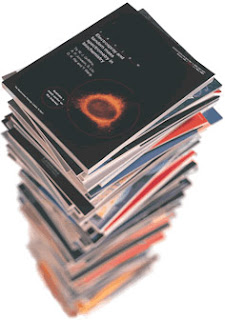Think about how many man-hours go into a single issue of a scientific journal. For each article, the first author probably works full-time for something like three years. Throw in the other five or six authors, and now you're somewhere closer to four or five years. Say there's ten articles per issue, and you are up to forty or fifty years of labor for each issue of a scientific journal! And there are hundreds of journals.
But what happens to that journal article? What happens to all those years of research? Well of course some professors subscribe to that journal, or maybe if you're extremely lucky your work gets picked up by CNN or the Science Times. But most of the time, that journal issue and the fifty man-years of work it represents just end up getting buried under the next month's issue. That's why it's so crucially important that every journal article gets indexed in some kind of academic database, like PubMed. At least this way it can be found by fellow researchers and cannot be totally forgotten.
There's a complementary way to share your research with the entire world, and that's Wikipedia. By summarizing and posting your research findings to the internet after publication, you can help make sure that they are secure and available to everyone within the greater body of human knowledge and ideas. A complete list of benefits to summarizing your research on Wikipedia can be found here, and how-to posts here.
